Agilent at
ESHG 2022
Vienna, Austria | June 11th - 14th
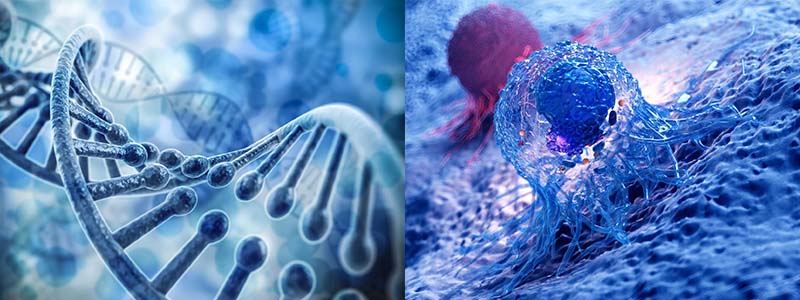
This year, we're delighted to see you all again at this important human genetics conference.
During ESHG 2022, we will host two satellite symposiums given by prestigious doctors and professors, attending from seven different countries, to share their most recent studies and discoveries about human and cancer genetics approaches. Don't miss them!
Scroll down to find all the information about our speakers and their talks of each satellite symposium.
Register now to reserve your seat in our face to face event or visit ESHG-REGISTRATION to attend our talks online.
Date: Saturday 11th June 2022
Location: Level 1, Room M1+2
Time: 10:00 – 11:30 hrs
Find the complete abstracts of their presentations by clicking each section below.
|
|
Dr. David Gokhale, PhD, North-West Genomic Laboratory Hub (NW-GLH), Manchester, UK. The use of NGS to deliver testing of large gene panels is now a routine part of rare disease diagnostic testing in many countries. However, relying on fixed enrichments is challenging for the following reasons: (i) Additional gene content needs to be regularly added as new evidence emerges (ii) On many occasions, the referring clinician may not want to select a single panel (for example if dealing with a complex case that crosses traditional specialty boundaries). One solution is to design fixed enrichments with a large number of targets and then use ‘virtual’ panels to limit analysis to selected genes which are relevant to each case. However, this still doesn’t address the needs of more complex patients where the analysis required doesn’t fall into fall into a specific category (cardiology, ophthalmology etc.). An alternative approach is to dispense with fixed panels and use exome analysis as a more global approach to diagnostic testing. The advantage of this approach is that the clinician can be offered a more personalised test - from a small number of selected genes to all the genes targeted by the enrichment. In addition, the laboratory can streamline its testing by using a single enrichment. However, the challenge is delivering coverage across such a large number of targets. In this session, we will present results from a newly designed enrichment which was developed as a collaboration between the NW-GLH and Agilent Technologies. The design builds on a previous iteration and targets over 5000 clinically actionable genes whilst aiming to be compact enough to deliver as an alternative to smaller fixed panels. The presentation will cover the design approach and provide information about its validation for use in a diagnostic genomics laboratory. |
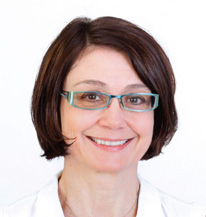 |
Dr. Martina Hruba, PhD, Genetika Plzen, Laboratory of Reproductive Genetics, Pilsen, Czech Republic. The ECS analysis was designed to offer to our clients a modern and comprehensive approach to preconception examination. It includes 91 genes associated with 116 autosomal-recessively inherited and 14 X-linked monogenic diseases (version V2). The test design includes recent international professional guidelines (ESHG, ACMG, ACOG) and targets the most frequent recessive diseases in all ethnic groups, including cystic fibrosis, spinal muscular atrophy, non-syndromic deafness (mutation in GJB2 gene), α and β thalassemia, sickle cell disease, phenylketonuria, type 1 albinism, and others. We describe how our approach, using various features of Agilent's SureSelect Custom Design, simultaneous analysis of sequence variants (SNVs/indels detection) and the whole exon losses/gains (CNV) increases detection rate up to 99%. |
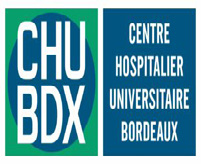 |
Claudio Plaisant, Laboratoire de génétique moléculaire, Bordeaux, France. The Magnis Dx allows reproducibility of librairies for Whole Exome Sequencing (WES) on NextSeq550 Dx sequencer. WES fastq files can be aligned to reference genome using Alissa Reporter which also perform the variant calling of single-nucleotide variants (SNV) as well as copy number variants (CNV). Then VCF files are transferred to Alissa Interpret enabling annotation and reporting of pathogenic SNV and CNV from WES as well as CNV obtained by CGH-array. Magnis Dx combined with Alissa software offers biologists an all-in-one solution from sample to analysis reporting. |
Date: Sunday 12th June 2022
Location: Level -2 (minus 2), Room G
Time: 14:15 – 15:45 hrs
Find the complete abstracts of their presentations by clicking each section below.
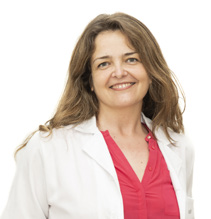 |
Dr. Inés Calabria, Health in Code Group, Valencia, Spain. Presenting the Action OncoKitDx, an automated custom SureSelect panel used in more than 20 hospitals in Spain, that screens the main solid tumor targets, including mutations, CNV and gene fusions in the DNA sequence. Dr Calabria will also introduce their applications of SureSelect in hereditary cancer, liquid biopsy, and oncohematology. |
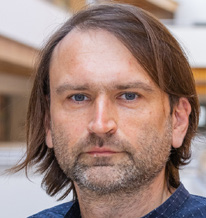 |
Pr. Bartosz Wasag, PhD. Medical University of Gdansk & University Clinical Centre, Gdańsk, Poland. Mutational analysis of BRCA1/2 genes is a part of routine diagnostic procedures for breast, ovarian, pancreatic, and prostate cancer patients. In addition, more complex molecular analyses are required to characterize these groups of patients. Therefore, there is a need for sensitive, reliable, and flexible methods accessible for diagnostics laboratories. |
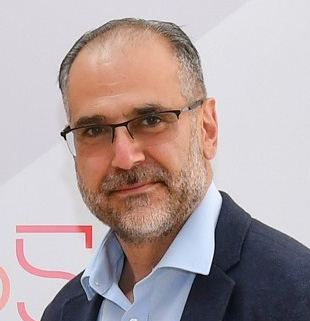 |
Dr. Paul Costeas, PhD, Karaiskakio Foundation, Nicosia, Cyprus. Discussing the merits (financial and genetic) of small gene vs comprehensive panel strategies, considering VUS, indels, molecular karyotyping, pharmacogenetic, somatic, and hereditary drivers. |
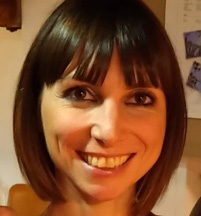 |
Dr. Maria Chiara Scaini, Veneto Institute of Oncology, Veneto, Italy. Background
Methods
Results
Conclusions
|
Please select which Agilent symposium you would like to attend during ESHG 2022
